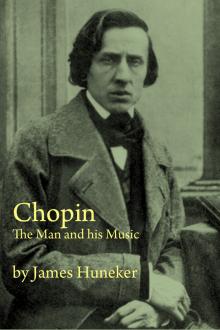Haydn - J. Cuthbert Hadden (ebook audio reader txt) 📗

- Author: J. Cuthbert Hadden
Book online «Haydn - J. Cuthbert Hadden (ebook audio reader txt) 📗». Author J. Cuthbert Hadden
Returning to 1779, an untoward event of that year was the destruction by fire of the theatre at Esterhaz. The re-building of the house was set about at once, the prince having meanwhile gone to Paris, and the re-opening took place on October 15, 1780, when Haydn's "La Fedelta Premiata," already mentioned, was staged.
Correspondence
It was about this time that he began to correspond with Artaria, the Vienna music-publisher, with whom he had business dealings for many years. A large number of his letters is given in an English translation by Lady Wallace. [See Letters of Distinguished Musicians. Translated from the German by Lady Wallace. London, 1867]. They treat principally of business matters, but are not unimportant as fixing the chronological dates of some of his works. They exhibit in a striking way the simple, honest, unassuming nature of the composer; and if they also show him "rather eager after gain, and even particular to a groschen," we must not forget the ever-pressing necessity for economy under which be laboured, and his almost lavish benevolence to straitened relatives and friends. In one letter requesting an advance he writes: "I am unwilling to be in debt to tradesmen, and, thank God! I am free from this burden; but as great people keep me so long waiting for payments, I have got rather into difficulty. This letter, however, will be your security...I will pay off the interest with my notes." There is no real ground for charging Haydn with avarice, as some writers have done. "Even philosophers," as he remarked himself, "occasionally stand in need of money"; and, as Beethoven said to George Thomson, when haggling about prices, there is no reason why the "true artist" should not be "honourably paid."
A London Publisher
It was about this time too that Haydn opened a correspondence with William Forster of London, who had added to his business of violin-maker that of a music-seller and publisher. Forster entered into an agreement with him for the English copyright of his compositions, and between 1781 and 1787 he published eighty-two symphonies, twenty-four quartets, twenty-four solos, duets and trios, and the "Seven Last Words," of which we have yet to speak. Nothing of the Forster correspondence seems to have survived.
Royal Dedicatees
Among the events of 1781-1782 should be noted the entertainments given in connection with two visits which the Emperor Joseph II received from the Grand Duke Paul and his wife. The Grand Duchess was musical, and had just been present at the famous combat between Clementi and Mozart, a suggestion of the Emperor. She had some of Haydn's quartets played at her house and liked them so well that she gave him a diamond snuff-box and took lessons from him. It was to her that he afterwards--in 1802--dedicated his part-songs for three and four voices, while the Grand Duke was honoured by the dedication of the six so-called "Russian" quartets. It had been arranged that the Duke and Duchess should accompany the Emperor to Eisenstadt, but the arrangement fell through, and an opera which Haydn had written for the occasion was only produced at Esterhaz in the autumn of 1782. This was his "Orlando Paladino," better known in its German form as "Ritter Roland." Another work of this year (1782) was the "Mariazell" Mass in C major (Novello, No. 15), which derives its name from the shrine of the Virgin in Styria, the scene of an incident already related. The mass was written to the order of a certain Herr Liebe de Kreutzner, and the composer is said to have taken special pains with it, perhaps because it reminded him of his early struggling days as a chorister in Vienna. It was the eighth mass Haydn had written, one being the long and difficult "Cecilia" Mass in C major, now heard only in a curtailed form. No other work of the kind was composed until 1796, between which year and 1802 the best of his masses were produced. To the year 1783 belongs the opera "Armida," performed in 1784 and again in 1797 at Schickaneder's Theatre in Vienna. Haydn writes to Artaria in March 1784 to say that "Armida" had been given at Esterhaz with "universal applause," adding that "it is thought the best work I have yet written." The autograph score was sent to London to make up, in a manner, for the non-performance of his "Orfeo" there in 1791.
The "Seven Words"
But the most interesting work of this period was the "Seven Words of our Saviour on the Cross," written in 1785. The circumstances attending its composition are best told in Haydn's own words. In Breitkopf & Hartel's edition of 1801, he writes:
About fifteen years ago I was requested by a Canon of Cadiz to compose instrumental music on the Seven Words of Jesus on the Cross. It was the custom of the Cathedral of Cadiz to produce an oratorio every year during Lent, the effect of the performance being not a little enhanced by the following circumstances. The walls, windows and pillars of the Church were hung with black cloth, and only one large lamp, hanging from the centre of the roof, broke the solemn obscurity. At mid-day the doors were closed and the ceremony began. After a short service the bishop ascended the pulpit, pronounced one of the Seven Words (or sentences) and delivered a discourse thereon. This ended, he left the pulpit and knelt prostrate before the altar. The pause was filled by the music. The bishop then in like manner pronounced the second word, then the third, and so on, the orchestra falling in at the conclusion of each discourse. My composition was to be subject to these conditions, and it was no easy matter to compose seven adagios to last ten minutes each, and follow one after the other without fatiguing the listeners; indeed I found it quite impossible to confine myself within the appointed limits.
This commission may be taken as a further evidence of the growing extent of Haydn's fame. He appears to have been already well known in Spain. Boccherini carried on a friendly correspondence with him from Madrid, and he was actually made the hero of a poem called "The Art of Music," published there in 1779. The "Seven Words" created a profound impression when performed under the circumstances just detailed, but the work was not allowed to remain in its original form, though it was printed in that form by Artaria and by Forster. Haydn divided it into two parts, and added choruses and solos, in which form it was given for the first time at Eisenstadt in October, 1797, and published in 1801. The "Seven Words" was a special favourite of the composer himself, who indeed is declared by some to have preferred it to all his other compositions.
The "Toy" Symphony
The remaining years of the period covered by this chapter being almost totally devoid of incident, we may pause to notice briefly two of the better-known symphonies of the time--the "Toy" Symphony and the more famous "Farewell." The former is a mere jeu d'esprit, in which, with an orchestral basis of two violins and a bass, the solo instruments are all of a burlesque character. Mozart attempted something of a kindred nature in his "Musical joke," where instruments come in at wrong places, execute inappropriate phrases, and play abominably out of tune. This kind of thing does not require serious notice, especially in the case of Haydn, to whom humour in music was a very different matter from the handling of rattles and penny trumpets and toy drums.
The "Farewell" Symphony
The "Farewell" Symphony has often been described, though the circumstances of its origin are generally mis-stated. It has been asserted, for example, that Haydn intended it as an appeal to the prince against the dismissal of the Capelle. But this, as Pohl has conclusively shown, is incorrect. The real design of the "Farewell" was to persuade the prince to shorten his stay at Esterhaz, and so enable the musicians to rejoin their wives and families. Fortunately, the prince was quick-witted enough to see the point of the joke. As one after another ceased playing and left the orchestra, until only two violinists remained, he quietly observed, "If all go, we may as well go too." Thus Haydn's object was attained--for the time being! The "Farewell" is perfectly complete as a work of art, but its fitness for ordinary occasions is often minimized by the persistent way in which its original purpose is pointed out to the listener.
Free from Esterhaz
Haydn's active career at Esterhaz may be said to have closed with the death, on September 28, 1790, of Prince Nicolaus. The event was of great importance to his future. Had the prince lived, Haydn would doubtless have continued in his service, for he "absolutely adored him." But Prince Anton, who now succeeded, dismissed the whole Capelle, retaining only the few members necessary for the carrying on of the church service, and Haydn's occupation was practically gone. The new prince nominally held the right to his services, but there was no reason for his remaining longer at the castle, and he accordingly took up his residence in Vienna. Thus free to employ his time as he considered best, Haydn embraced the opportunity to carry out a long-meditated project, and paid the first of his two visits to London. With these we enter upon a new epoch in the composer's life, and one of great interest to the student and lover of music.
CHAPTER V(FIRST LONDON VISIT--1791-1792)
English Music about 1791--Salomon--Mozart and Haydn--Terms for London--Bonn and Beethoven--Haydn Sea-Sick--Arrives in London-- An Enthusiastic Welcome--Ideas of the Metropolis--At Court-- Unreasoning Rivalries--Temporarily eclipsed--Band and Baton-- A Rehearsal Incident--Hanover Square Rooms--Hoops and Swords-- The "Surprise" Symphony--Gallic Excitement--New Compositions-- Benefit and Other Concerts--Haydn on Handel--Oxford Doctor of Music--The "Oxford" Symphony--Relaxations--Royalty again--Pleyel --Close of Season--Herschel--Haydn at St Paul's--London Acquaintances--Another Romance--Mistress Schroeter--Love-Letters --Haydn's Note-Book.
English Music about 1791
Haydn came to England in 1791. It may occur to the reader to ask what England was doing in music at that time, and who were the foremost representatives of the art. The first question may be partially answered from the literature of the period. Thus Jackson, in his Present State of Music in London, published the year after Haydn's arrival, remarks that "instrumental music has been of late carried to such perfection in London by the consummate skill of the performers that any attempt to beat the time would be justly considered as entirely needless." Burney, again, in his last volume, published in 1789, says that the great improvement in taste during the previous twenty years was "as different as civilized people from savages"; while Stafford Smith, writing in 1779, tells that music was then "thought to be in greater perfection than among





Comments (0)